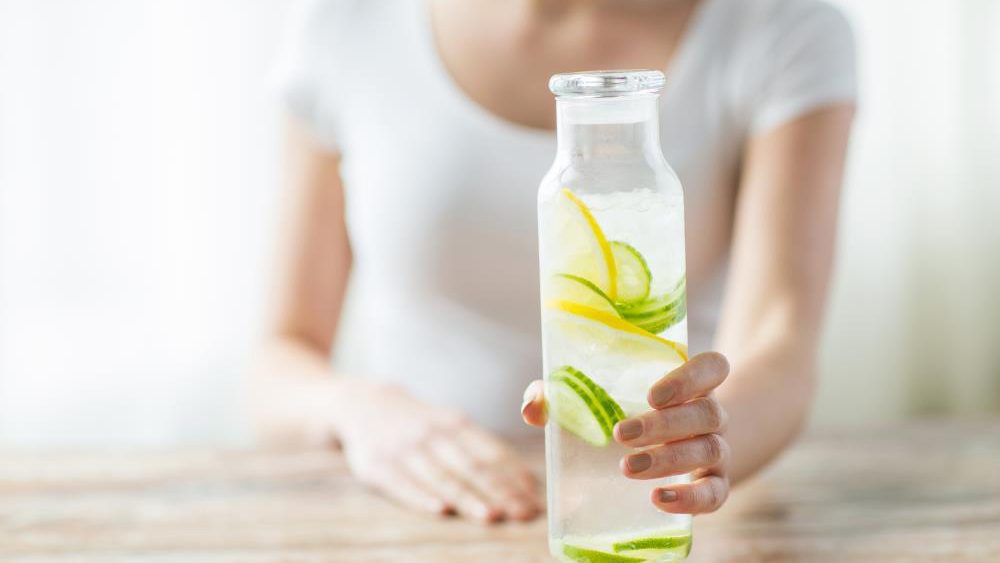
Advertisement
People follow diets to lose weight, improve their well-being, or to manage certain health conditions. Regardless of your main reason for dieting, experts advise that it’s important to drink enough water regularly to promote weight loss and stay healthy.
According to Dr. Thomas Chi, a urologist at the University of California, San Francisco (UCSF), following a restrictive diet won’t be effective if you’re dehydrated.
Dieters shouldn’t focus so much on a new eating plan that they forget to drink water regularly. Those following extreme diets usually have higher levels of salt and are less hydrated.
He added that high salt levels may be particularly problematic, especially if you consume a lot of meat. Being dehydrated when you’re eating too much meat can result in complications such as kidney stones.
Fortunately, the human body has a natural way of letting you know that you need to stay hydrated. Dr. Niket Sonpal, an internist and gastroenterologist in New York City, shared that thirst is the body’s way of alerting you that you need more water.
Studies have confirmed that regular water intake is just as important as following a healthy diet, especially when it comes to preventing dehydration. However, some people mistakenly interpret thirst as hunger. Because of this, you may be overeating when you just need to rehydrate.
To effectively lose weight, Sonpal says you need to devise a plan of action that considers your current condition, how much weight you want to lose, and how you’re going to shed the pounds.
Why is drinking enough water important?
Drinking water alone won’t make you lose weight. A truly healthy lifestyle incorporates important habits like hydration, exercise, and a balanced diet.
Dr. Chirag Shah, a board-certified emergency medicine physician and an assistant professor in emergency medicine at Rutgers University, says that water intake promotes weight loss since it can help boost fat metabolism and decrease feeding.
In a 2016 study published in the journal Nutritional Epidemiology, researchers observed over 18,000 middle-aged and older adults and found that those who consumed more water were consistently more satisfied (i.e. not hungry). In turn, these volunteers consumed fewer calories daily. In the same study, the volunteers who regularly drank water consumed less cholesterol, fat, and salt every day compared with those who were dehydrated or didn’t consume enough water.
A separate 2010 study published in the journal Obesity revealed that participants who consumed water before a meal had greater weight-loss success than those who didn’t drink water. The researchers posited that this is because water has a filling effect, which helps you eat less.
Unlike energy drinks, juices, soda, sports drinks, or other sugary beverages, water doesn’t contain additional calories, carbs, fat, or sugar. (Related: Healthy and hydrated: How much water should you drink daily?)
Tips for staying hydrated
If you’re worried that you’re not drinking enough water, follow the tips below to prevent dehydration.
- If you think you’re hungry, drink some water before eating a snack. Wait for at least 15 minutes. If you still feel hungry, you may need to eat something. However, if you feel better after drinking water, then your body was just trying to let you know that you were thirsty.
- Always bring a bottle of water with you. Buy a reusable water bottle, fill it up, then put it in your bag before you leave for school or work. Taking sips of water throughout the day will help you feel refreshed.
- Set an alarm. This is particularly helpful if you keep forgetting to drink water. Set an alarm on your phone to go off every 60 minutes (or after every two hours), then drink a glass of water whenever the alarm goes off. Do this daily until drinking water becomes a habit.
- Drink water alternatives. If you don’t like plain water, drink flavored substitutes like tea or homemade fruit or veggie infused drinks.
- Eat more fruits and vegetables. You can consume hydrating fruits and vegetables like cantaloupe, celery, cucumber, lettuce, oranges, peaches, strawberries, watermelon, and zucchini to increase your water intake.
Drinking enough water is crucial if you want to lose weight or follow a more balanced diet. Stay hydrated, eat more fruits and vegetables, and exercise regularly to boost your overall health.
Sources include:
Advertisements







